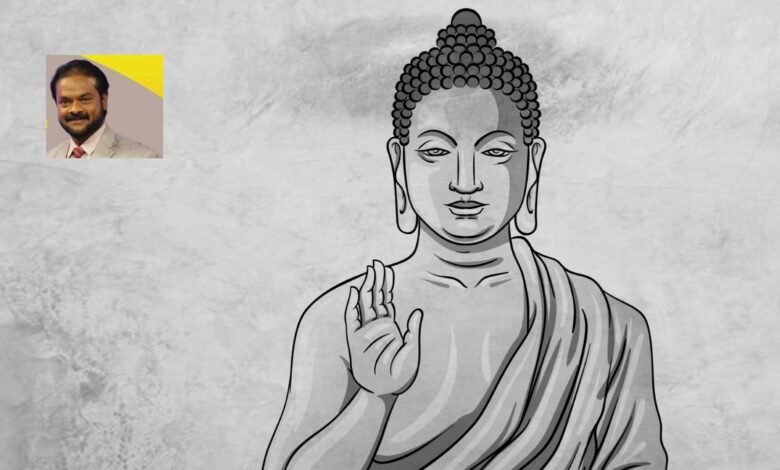Buddha in Hindu incarnations: A diplomatic paradox or strategy?
By Doruvu Paul Jagan Babu:Bureau Chief

The inclusion of Gautama Buddha, a staunch critic of Hinduism, in the Hindu Dashavatara (Ten Incarnations of Vishnu) has long sparked debate. Dr. Mruthyunjaya LK, a Christian Scholar and Public Intellectual, notes that Buddha’s teachings, which dismantled caste hierarchies, rejected Vedic authority, and founded an independent religion, challenge the logic of this categorization. This column explores the rationality, relevance, and implications of portraying Buddha as a Hindu incarnation while addressing key questions that probe this paradox.
The core questions on Buddha’s inclusion
1. How can Buddha oppose Hinduism and still be a Hindu avatar?
Buddha openly condemned the caste system rooted in the Manusmriti and challenged the authority of the Vedas, key pillars of Hinduism. He rejected intermediaries like Brahmin priests and emphasized personal enlightenment. Can someone who opposed the fundamental tenets of Hinduism still be labeled as an incarnation of Vishnu?
2. Is there a consensus in Hinduism on Buddha as an Avatar?
If all schools of Hinduism accept Buddha as the ninth avatar of Vishnu, how do they reconcile his opposition to their traditions? If not, who replaces Buddha, and on what basis?
3. Was this a diplomatic move by Brahminism?
Could this inclusion be a strategic attempt by Brahminical Hinduism to subsume and neutralize Buddha’s impact, even as his teachings formed the foundation of a separate religion?

Buddhism’s departure from Hinduism
Buddha’s philosophy diverged fundamentally from Hinduism:
He rejected the caste system that perpetuated social inequality.
He denounced the supremacy of the Vedas and rituals central to Hindu practice.
He championed self-realization through individual effort, without reliance on gods or priests.
A new religious identity
Buddhism emerged as a separate faith, distinct from Hinduism, and today has over 535 million followers worldwide—nearly half the size of the global Hindu population.
Contradictions in the narrative
Hinduism, which reveres both the individual soul (Atman) and the ultimate self (Brahman), contrasts sharply with Buddhism, which denies the existence of an eternal self. The philosophical and doctrinal differences raise questions about Buddha’s compatibility with Hindu theology.
A strategic move?
Critics argue that Brahminical Hinduism’s inclusion of Buddha in the Dashavatara was a diplomatic effort to subsume and diminish Buddhism’s independent identity. Simultaneously, the same forces actively suppressed Buddhism in India, driving its followers out through persecution and marginalization.
Historical and social implications
The caste system remains entrenched in Indian society, perpetuated by Brahminical dominance. Shudras and Dalits are still barred from full participation in Hindu temples and rituals, reflecting the unchanged social order that Buddha once opposed.
Declining Hindu numbers
Over the past seven decades, census data reveals a steady decline in Hindu adherents, with many converting to religions like Buddhism, Christianity, and Islam. Critics attribute this to the persistence of caste-based discrimination rather than external religious influences.
A call to abandon inequality
For those disillusioned with caste hierarchies and exclusionary practices, embracing religions or philosophies that advocate for equality and inclusion offers a path forward. The time has come for Shudras and other marginalized communities to question inherited traditions and choose spiritual frameworks that affirm dignity and humanity.
The inclusion of Buddha in the Dashavatara, despite his stark opposition to Hindu practices, exemplifies a historical paradox and a strategic effort to subsume dissent. As modern Hinduism grapples with declining numbers and increasing criticism, it must confront the enduring inequalities within its fold and seek a more inclusive path forward.
The views expressed in this column are solely those of Dr. Mruthyunjaya LK, Christian Scholar and Public Intellectual.








